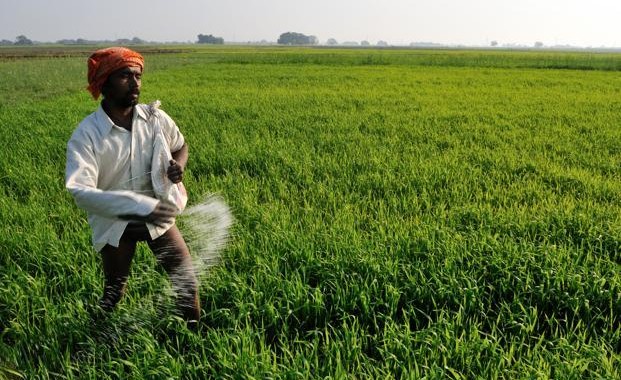
ISLAMABAD: The fertiliser industry of Pakistan is internationally competitive and can thrive in a fully deregulated environment, even without any subsidies.
Talking to newsmen, Imran Ahmed, CFO of Engro Fertilizers, said that currently the fertiliser sector is providing urea at a significant discount rates of Rs5,000/bag, compared with the imported urea.
By deregulating the industry and introducing weighted average cost of gas (WACOG) for all manufacturers, including indigenous gas and imported RLNG-based plants, the government can earn higher revenues and reduce the country’s fiscal imbalance.
Ahmed said: “This would; however, mean that [the] domestically produced urea will be available at higher prices, compared with [the] import parity cost. Agri productivity and farmer incomes, especially at the bottom of the pyramid, could take a huge hit if no countermeasures are taken.”
“To mitigate this adverse outcome, the government will need to implement a smart subsidy mechanism for small farmers,” he said.
“Higher gas revenue of Rs89 billion from the fertiliser industry can fund the targeted subsidy of around Rs65 billion for small landholders. Around 90 per cent of the farmers own around 48 per cent of the land, with a size of less than 12.5 acres. Post-deregulation, the government can utilise the benefit of reduced subsidy on feed gas to offer targeted subsidies to [the] small farmers.”
“The removal of feed gas subsidy on [the] production of urea and DAP will not have a significant impact on the prices of major crops and resultant expenditure of family households in Pakistan,” he added.
Ahmed said that the fertiliser industry is often accused of earning excessive profits; however, a sector-wise review over the last 10 years reveals that the returns have been lower than many other industries.
During this period, the industry made an investment of Rs162 billion in capacity expansions and plant upgrades under the highly effective Fertiliser Policy 2001 that has helped Pakistan become self-sufficient in urea production. As a result, the farmers of Pakistan remained shielded from the Covid-induced shocks in the global urea prices that have surged 86 per cent since last year.
He said: “Despite introduction of the Fertiliser Policy, return on assets for the sector remained lower than other sectors. The return on equity and return on assets of the fertiliser industry at 33 per cent and 11 per cent, respectively, are lower than many major industries, including food and personal goods, automobiles, and oil exploration and production.”
“The return on equity and return on assets for other industries are as high as 67 per cent and 19 per cent, respectively,” he added.
The fertiliser industry has played a critical role in ensuring food security in Pakistan by providing adequate and affordable urea supply. The government is providing the industry a feed gas subsidy on spot basis of Rs842/bag, while the industry is passing on six times more benefit to the farmers through a discount of Rs5,000/bag, compared with the international levels.
Through import substitution, the fertiliser sector will contribute more than $3 billion towards reducing the trade deficit in 2021. As a result of the significantly lower prices, the local fertiliser industry will save farmers from an additional burden of Rs363 billion in 2021, as well.
Further, 96 per cent of the income attributable to shareholders of the fertiliser companies was contributed to the national exchequer last year. No other industry in Pakistan operates at the level of transparency with all listed companies and contribution to tax revenues of the government.
Catch all the Business News, Breaking News Event and Latest News Updates on The BOL News
Download The BOL News App to get the Daily News Update & Follow us on Google News.




